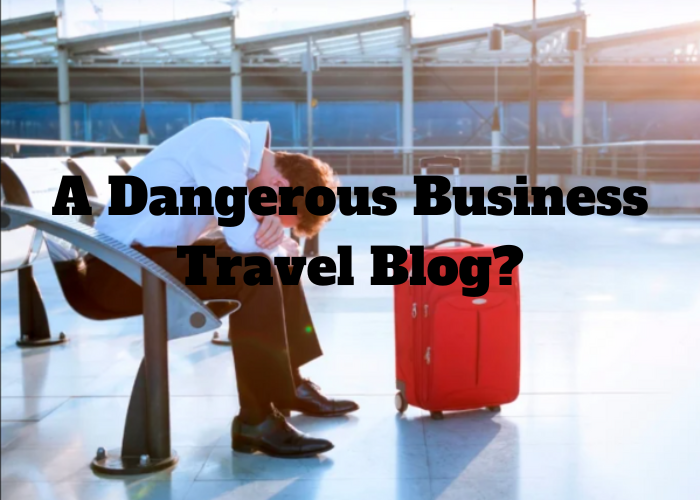Is business travel inherently dangerous? A recent study by Location Based Technologies attempted to answer this question. Their findings might surprise you. Check out their report to see how your industry fares and learn some safety tips for staying safe on the road.
How To Stay Safe While Traveling for Work
Traveling for work can be a dangerous proposition. Every year, business travelers face a variety of risks, from natural disasters and political unrest to crime and terrorism. While there’s no way to completely eliminate the risks associated with business travel, there are steps you can take to minimize them. Here are some tips for staying safe while traveling for work:
– Do your research. Before you travel, take the time to learn about your destination. Familiarize yourself with the local culture and customs, and make sure you know the safest areas to travel in. If possible, consult with someone who has firsthand knowledge of the area.
– Stay informed. Once you’re on the ground, stay up to date on the latest safety and security information. The U.S. State Department’s website offers travel advisories and other resources that can help you stay informed about potential risks in your destination country.
– Be aware of our surroundings. When you’re out and about, pay attention to your surroundings and trust your instincts. If something doesn’t feel right, move away from the area and/or get to a safe place as quickly as possible.
– Follow basic safety precautions. When traveling, it’s important to follow basic safety precautions like avoiding ATMs in isolated or poorly lit areas, keeping your belongings close to you at all times, and being aware of pickpockets and other common scams.
By following these tips, you can help keep yourself safe while traveling for work. Remember, however, that even the best precautionary measures cannot guarantee your safety in all situations. If you find yourself in a situation where your safety is at risk, always err on the side of caution and do whatever you can to get to a safe place as quickly as possible.
What To Do if You’re in an Emergency Situation
If you are ever in an emergency situation, it is important to know what to do. The first step is to remain calm. If you panic, you will only make the situation worse. Once you have calmed down, assess the situation and try to determine the best course of action. If you are injured, call for help. If you are not injured, try to determine the cause of the emergency and take steps to mitigate the situation. For example, if there is a fire, try to extinguish it. If there is a flood, try to stop the water from entering your home. Remember, in an emergency situation, every moment counts. So don’t waste time wondering what to do. Instead, focus on taking action that will help resolve the situation.
How To Keep Your Belongings Safe While on the Road
Traveling can be a dangerous business – especially if you’re not careful with your belongings. Whether you’re on the road for work or pleasure, it’s important to take some simple steps to protect your valuables. Here are a few tips to keep in mind:
When packing, avoid putting all of your eggs in one basket. Spread out your cash, credit cards, and other important documents among different bags. That way, if one bag is lost or stolen, you won’t be left completely stranded.
Be smart about where you stash your valuables. When you’re at the hotel, keep your passport and other essentials in the safe. When you’re out and about, don’t leave valuables in plain sight in your car or hotel room. And never carry all of your cash on you – pickpockets are everywhere.
Keep an eye on your belongings at all times. This may seem like common sense, but it’s easy to get distracted when you’re traveling and let your guard down. Hold onto your purse or briefcase, and keep an eye on your luggage when it’s being loaded onto trains or buses.
By following these simple tips, you can help protect yourself from theft – and enjoy a worry-free trip.
